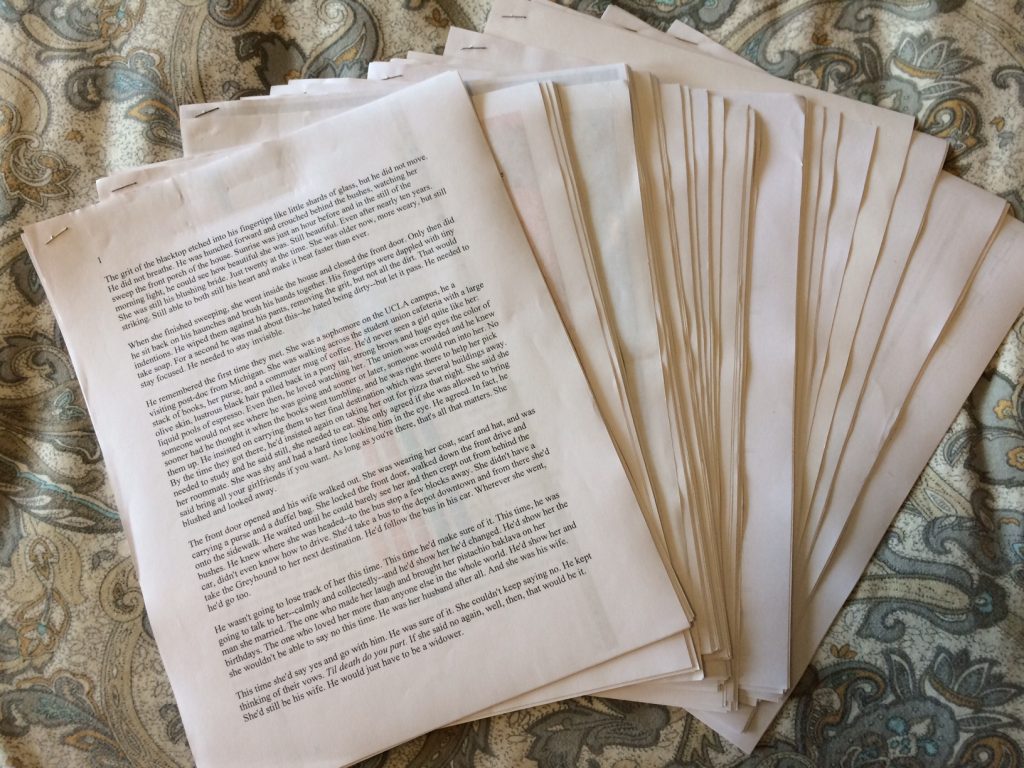 The definition of fulcrum is “the point on which a lever rests or is supported and on which it pivots.”
The definition of fulcrum is “the point on which a lever rests or is supported and on which it pivots.”
Another definition is “a thing that plays a central or essential role in an activity, event, or situation.”
Brian McDonald, author of the writing book, Invisible Ink, writes that “Act 2 is your longest act and makes up the body of your story. This act is usually split in two. I like to call this split the fulcrum.”
Yesterday, I reached the fulcrum in my novel-in-progress, SEVEN DUDES. At 32,489 words, I’ve reached the place where the story pivots, where my main character must face his greatest love and his greatest fear and must make a choice to go forward or retreat.
I’m happy and relieved I’ve reached this point in my manuscript, but at the same time, I can see the holes in the story, and many, many mistakes. Will I go back and change those things before I go on?
No.
What I’ve realized from years of writing is that you don’t improve if you don’t finish.
It’s incredibly enticing to want to keep reworking and rewriting scenes until they are perfect (I’ve been down that primrose path oh so many times), but the problem is, you don’t know what’s perfect because one, “perfect” does not exist, and two, you can’t know how that scene can be improved if you don’t know how it fits into the whole of your story.
You can only see the whole of your story after you finish writing the whole story.
If you keep rewriting scenes and chapters instead of moving forward, you will never get the chance to see your work as a whole. This is crucial to improving as a writer. The major realizations I’ve had about my stories have mostly come after I finished. Some came while I was writing, such as right now, I can tell my armature is squishy and I haven’t proven it enough, but in most cases, major realizations came after I finished the first or second draft. It especially helps me to put the manuscript away for a while, at least four weeks, and then return to it with fresh eyes.
It’s impossible to have a true view of your story, and to know what needs to change, if you can’t read the whole story.
I don’t know how many authors have said, “Finish. Number one rule is to finish.” I completely agree with them.
If you want to be an author, and not just a writer, you need to finish.
Even now, as my fingers are itching to go back and rewrite scenes and insert new ones, I know that what will really help me is to keep moving forward. That’s why I’m writing this post: to remind myself to keep my eyes on the goal.
September is my race to the end, to finish this first draft and get this story that’s been gestating inside of me for nearly 11 years, OUT. There’s no turning back. The finish line is in sight.
NOTE: The photo above contains all the printed pages of my current draft so far. My first novel was 24,000 words so it’s hard for me to believe I’ve written more than 32,000 words and I’m only half way there. Wish me luck!
Peg Cheng is the author of The Contenders, a middle-grade novel centered on the question, can enemies become friends? She is currently writing another novel that is a re-imagining of the Snow White fairy tale set in 1980s Seattle.